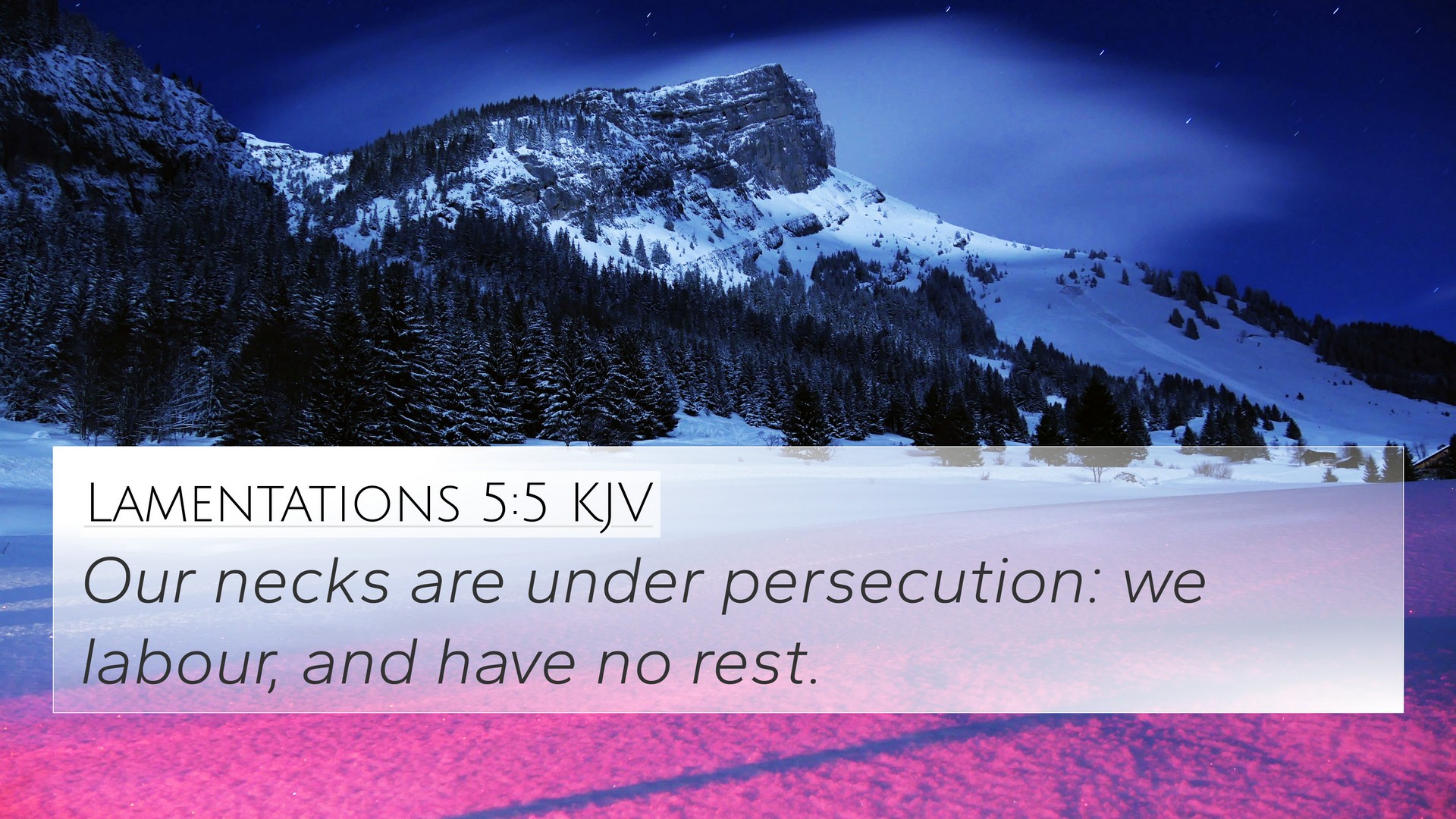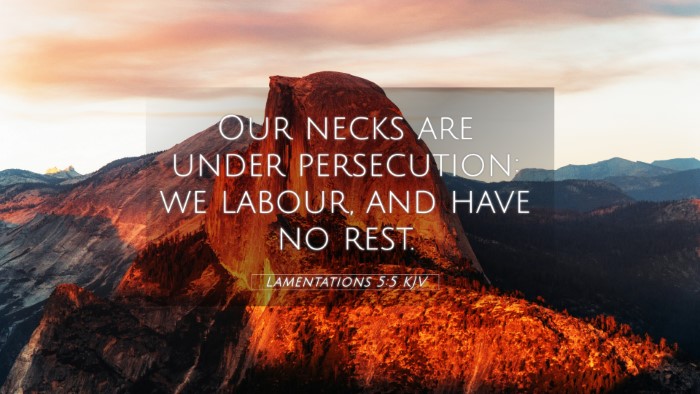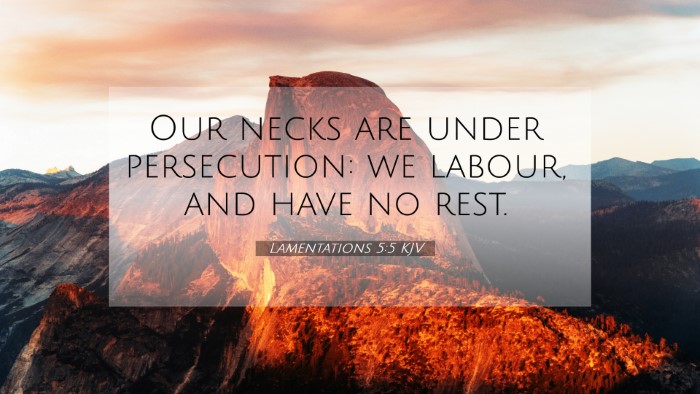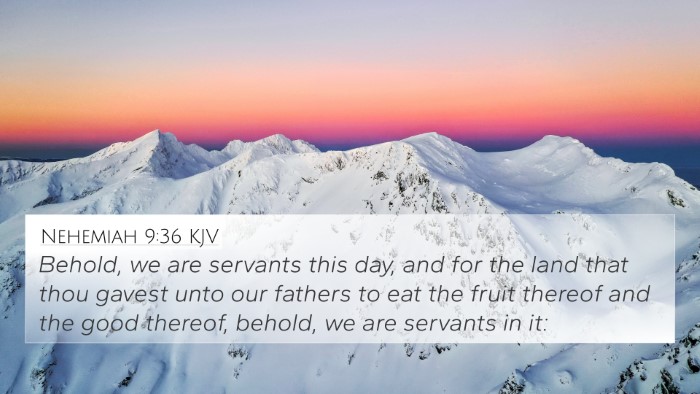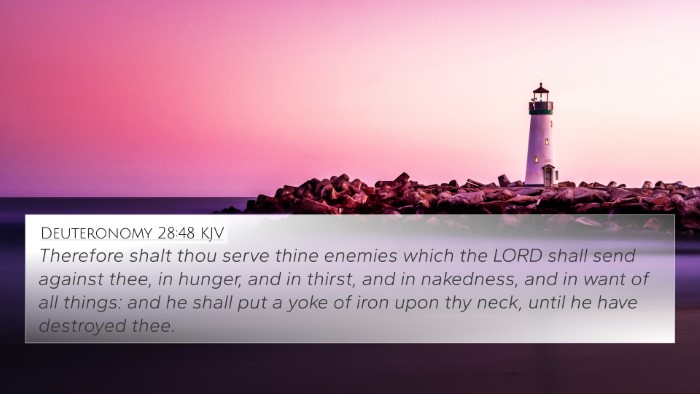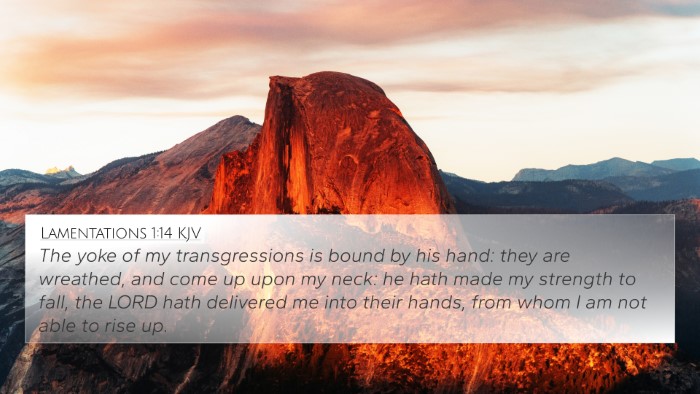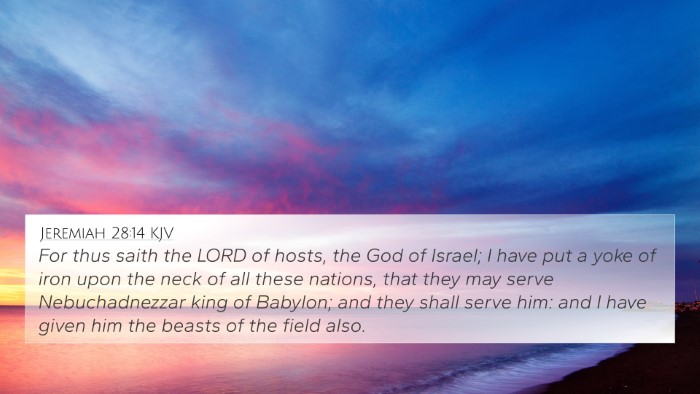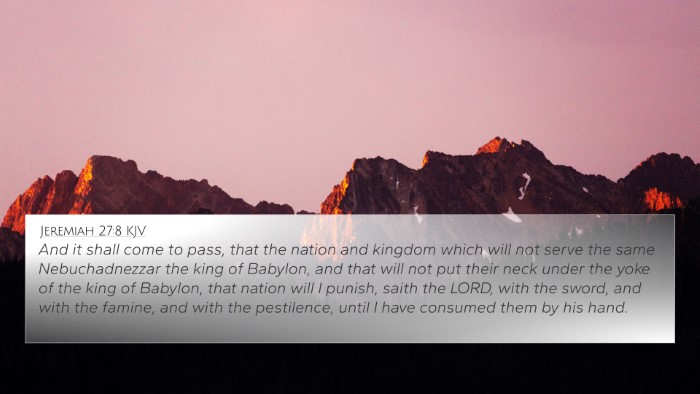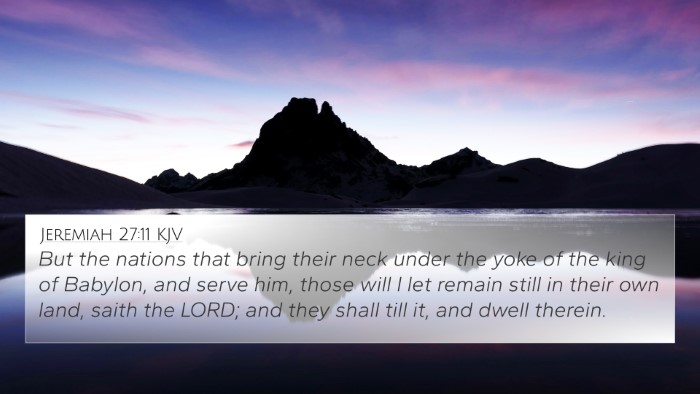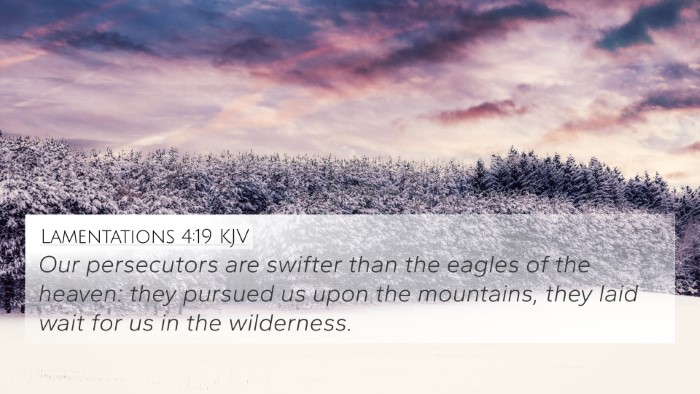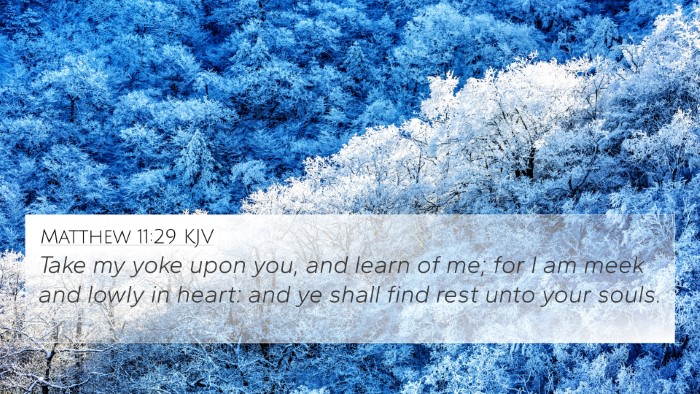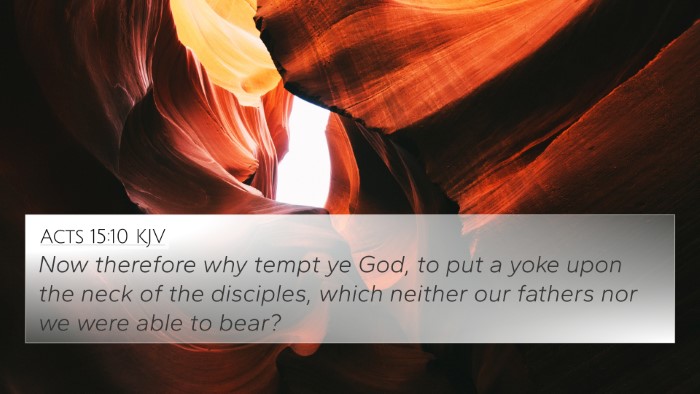Understanding Lamentations 5:5
The verse Lamentations 5:5 states: "Our necks are under persecution: we labour, and have no rest." This passage encapsulates the plight of the people of Israel during a time of profound suffering and loss. This commentary combines insights from celebrated public domain commentators such as Matthew Henry, Albert Barnes, and Adam Clarke, providing a comprehensive understanding of the verse's meaning.
Contextual Background
Lamentations, traditionally attributed to the prophet Jeremiah, is a poetic expression of grief over the destruction of Jerusalem. The verses paint a portrait of devastation and the hopelessness felt by those who endured the siege and suffering. In chapter five, the prophet shifts to a plea for God's restoration, reflecting both a communal lament and an individual struggle.
Verse Analysis
The phrase "Our necks are under persecution" indicates the burden of oppression that the Israelites are experiencing. They are figuratively bowing under the weight of their suffering, akin to laborers in bondage. The imagery evokes a deep sense of vulnerability, suggesting that the people are not only physically oppressed but also spiritually weakened.
The latter part of the verse, "we labour, and have no rest", expresses the futility of their efforts. Despite their hard work and suffering, they find no relief or respite. This resonates with various scriptural themes regarding hardship and the search for rest, drawing connections to verses such as Matthew 11:28-30, where Jesus invites the weary to find rest in Him.
Thematic Connections
- Oppression and Suffering: The theme of persecution is prevalent throughout the Bible, reminiscent of Exodus 6:5, where God hears the groans of His people in bondage.
- Labor and Rest: The struggle for rest amidst labor echoes Genesis 3:19, where man is destined to toil for sustenance.
- Divine Justice: This verse reflects the larger biblical conversation on justice, paralleling Psalms 12:5, which emphasizes God’s attention to the plight of the oppressed.
- Cries for Help: The lamentation expressed mirrors the cry of the Israelite slaves in Exodus 2:23, showing God’s promise of deliverance.
- Hope in Restoration: Despite their despair, these verses ultimately point to a future hope, as seen in Isaiah 40:1-2, where comfort is promised after suffering.
- Collective Mourning: The community aspect of suffering parallels the teachings in James 5:16, encouraging believers to confess and pray for one another.
- Endurance through Trials: This verse invites reflection on Romans 5:3-5, which discusses rejoicing in sufferings as a pathway to hope.
Cross-Referencing Biblical Texts
In seeking to fully understand Lamentations 5:5, it is beneficial to look at cross-references that highlight similar themes or situations in the scripture:
- Exodus 6:5: God remembers His covenant, assuring the oppressed of His deliverance.
- Psalms 13:1-2: A psalm expressing the questioning of God during times of despair.
- Psalms 51:17: A reminder that God desires a broken spirit and contrite heart amidst suffering.
- Isaiah 53:4-5: The suffering servant who bears the griefs and sorrows of others.
- Matthew 11:28-30: An invitation to come to Jesus for rest, echoing the need for relief found in Lamentations.
- Romans 8:18: Assurance that present sufferings are not worth comparing with the glory to be revealed.
- 1 Peter 5:10: God Himself will restore, confirm, strengthen, and establish those who suffer for a time.
Conclusion
Lamentations 5:5 serves as a stark reminder of the human experience of suffering, encapsulating themes of labor, oppression, and the longing for relief. Through a careful examination and cross-referencing of related Bible verses, one can find a rich tapestry of themes that resonate through the Scriptures, connecting the Old and New Testaments, and revealing God's heart for the afflicted. This understanding aids those seeking deeper insights into scriptural contexts, making connections that enhance their spiritual journey.
